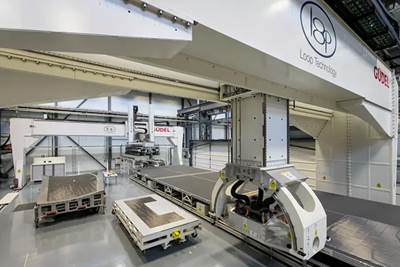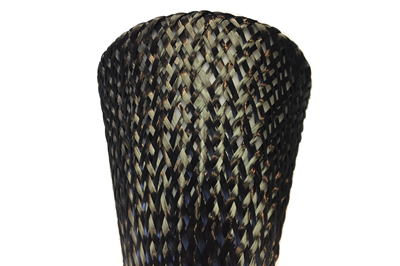NCC launches KTP project with Carbon ThreeSixty
Two-year project will help Carbon ThreeSixty to develop more optimized, higher-performing composite components and structures using tailored fiber placement (TFP).
The National Composites Centre (NCC, Bristol, U.K.) has launched its first Knowledge Transfer Partnership (KTP) project with composites design and manufacturing specialists Carbon ThreeSixty (Chippenham, U.K.).
The two-year project aims to transfer and embed specialist composites technology within Carbon ThreeSixty that will enable the design, development and manufacture of highly optimized, lightweight and higher-performing composite components and structures, such as aircraft landing gear, all-composite car wheels and energy storage pressure vessels.
The project will focus on tailored fiber placement (TFP), an automated technology where a single bundle of reinforcement (tow) is effectively sewn onto a backing in almost any direction or shape, which can be built up in layers. This means the laminate can be tailored to have certain mechanical properties in certain locations at the tow level rather than the usual bulk fabric properties. It is an affordable and agile technology that offers highly specific fiber position and orientation that also reduces material cost.
“Our TFP capability is currently academically focused, and we believe that embedding a KTP Associate will bring huge commercial benefits for both the NCC and Carbon ThreeSixty.”
As part of the project, a graduate, known as a KTP Associate, will be recruited and primarily based within Carbon ThreeSixty, supported by experienced NCC engineers and with access to its facilities and expertise. The project’s ultimate aim is to enable Carbon ThreeSixty to innovate and develop optimized products using TFP, supporting the business’ growth ambitions. This collaborative approach provided by the KTP project is said to be essential to knowledge transfer between the two organizations. Recruitment for the KTP Associate will be shortly launched on the NCC jobs section of its website.
Ruth Courtney, the NCC’s engineering capability lead for 3D textiles, will supervise the appointed Associate throughout the duration of the project, providing guidance and training on the practical use of the associated technology and software. “We are delighted to partner with Carbon ThreeSixty in our first KTP project, enabling them to access our wealth of experience in TFP technology and manufacturing processes to help meet their business growth ambitions,” Courtney emphasizes. “Our TFP capability is currently academically focused, and we believe that embedding a KTP Associate will bring huge commercial benefits for both the NCC and Carbon ThreeSixty.”
According to Tom Higginbottom, lead engineer at Carbon ThreeSixty, the KTP project will help the company unlock many commercial opportunities and ensure Carbon ThreeSixty exceeds its customers’ expectations in getting products right the first time.
The NCC, one of the seven centers of High Value Manufacturing Catapult, is one of more than 100 KTP “Knowledge Bases” that works with small and large businesses to develop their KTP projects that aim to positive commercial impact, embedding technologies and management processes within businesses supporting their long-term growth plans.
The KTP program has been running for nearly 50 years and during that time has enabled more than 14,000 businesses to drive innovation for positive impact. Innovate UK KTN is a delivery partner of the program, providing expert support to all KTP projects and Associates via its national network of more than 30 Knowledge Transfer Advisers.
Read Next
Ultra high-rate composite deposition system trials to surpass layup targets
The NCC, alongside partners Loop Technology, Coriolis and Güdel, are on track to deliver dry fiber deposition rates exceeding 350 kilograms/hour, seven times more than standard aerospace rates.
Read MoreCarbon ThreeSixty wins funding to explore feasibility of novel hydrogen storage architecture
Under project CHiDEs, researchers are to study carbon fiber 3D woven fabrics for more configurable storage geometries and higher volumetric efficiency.
Read More“Structured air” TPS safeguards composite structures
Powered by an 85% air/15% pure polyimide aerogel, Blueshift’s novel material system protects structures during transient thermal events from -200°C to beyond 2400°C for rockets, battery boxes and more.
Read More

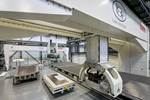
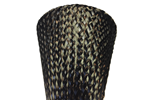

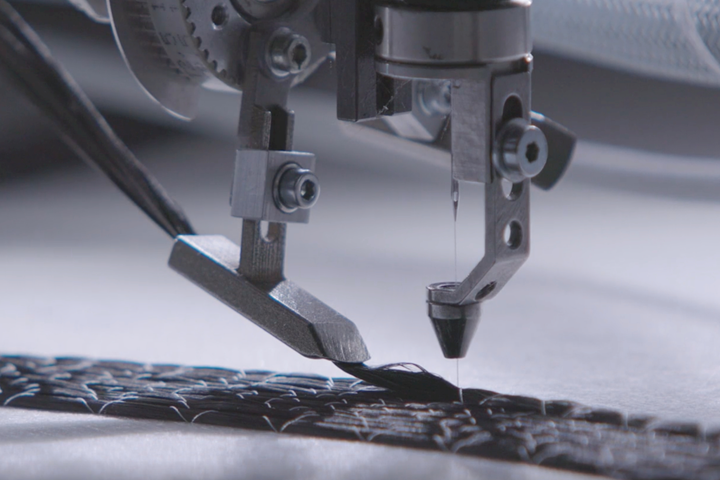













.jpg;maxWidth=300;quality=90)
